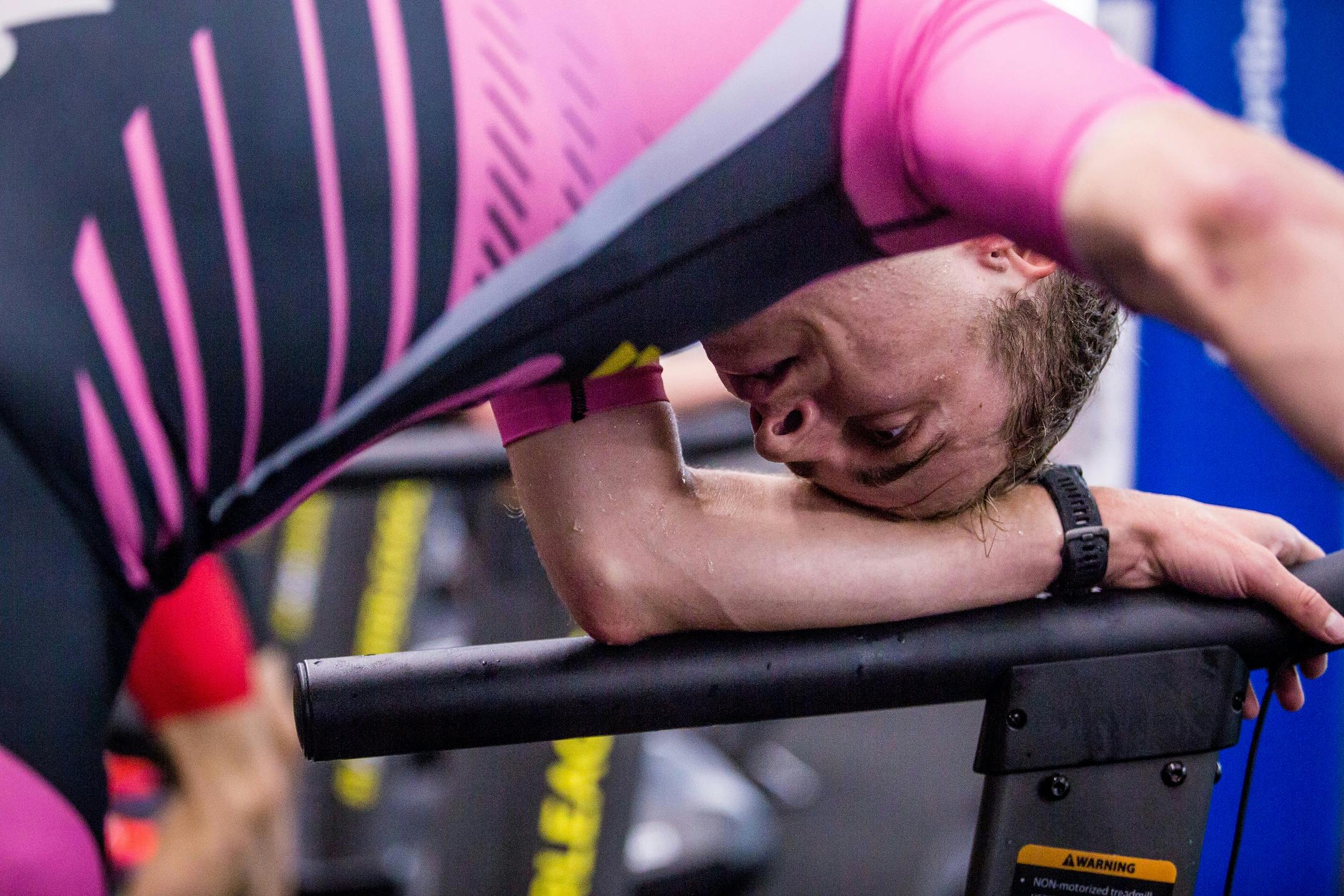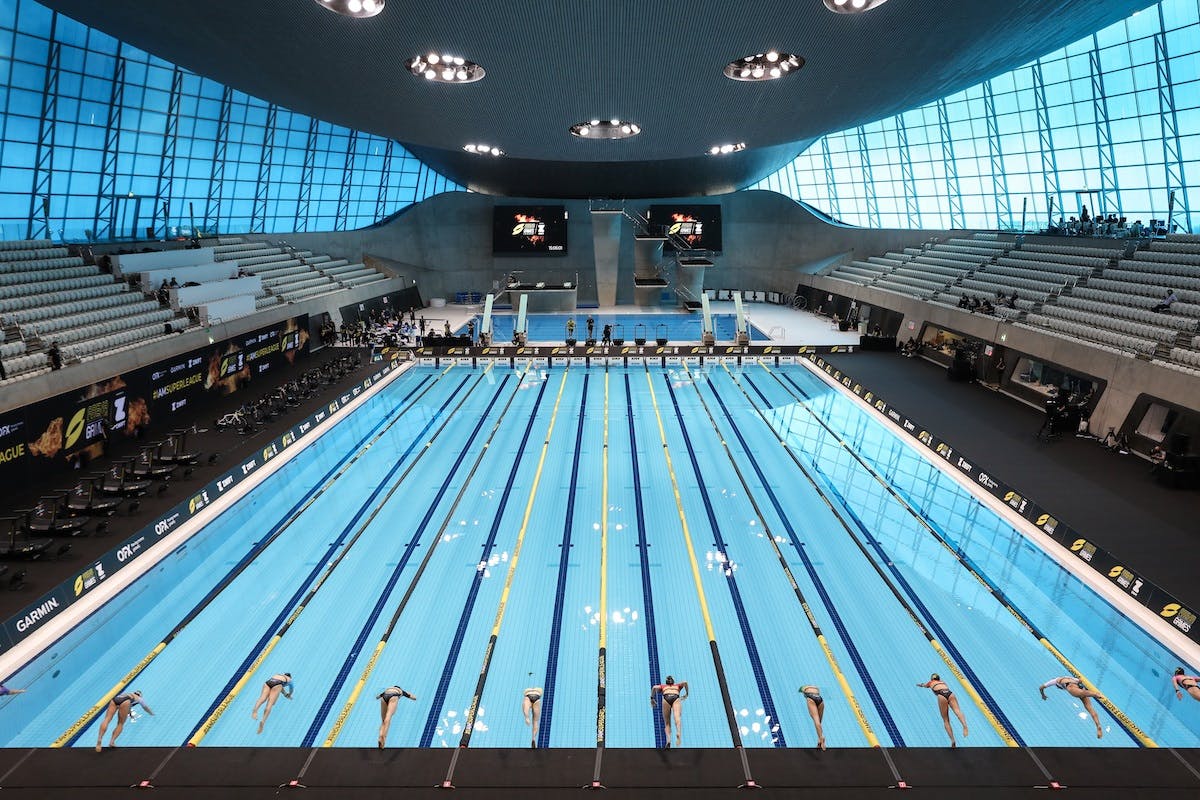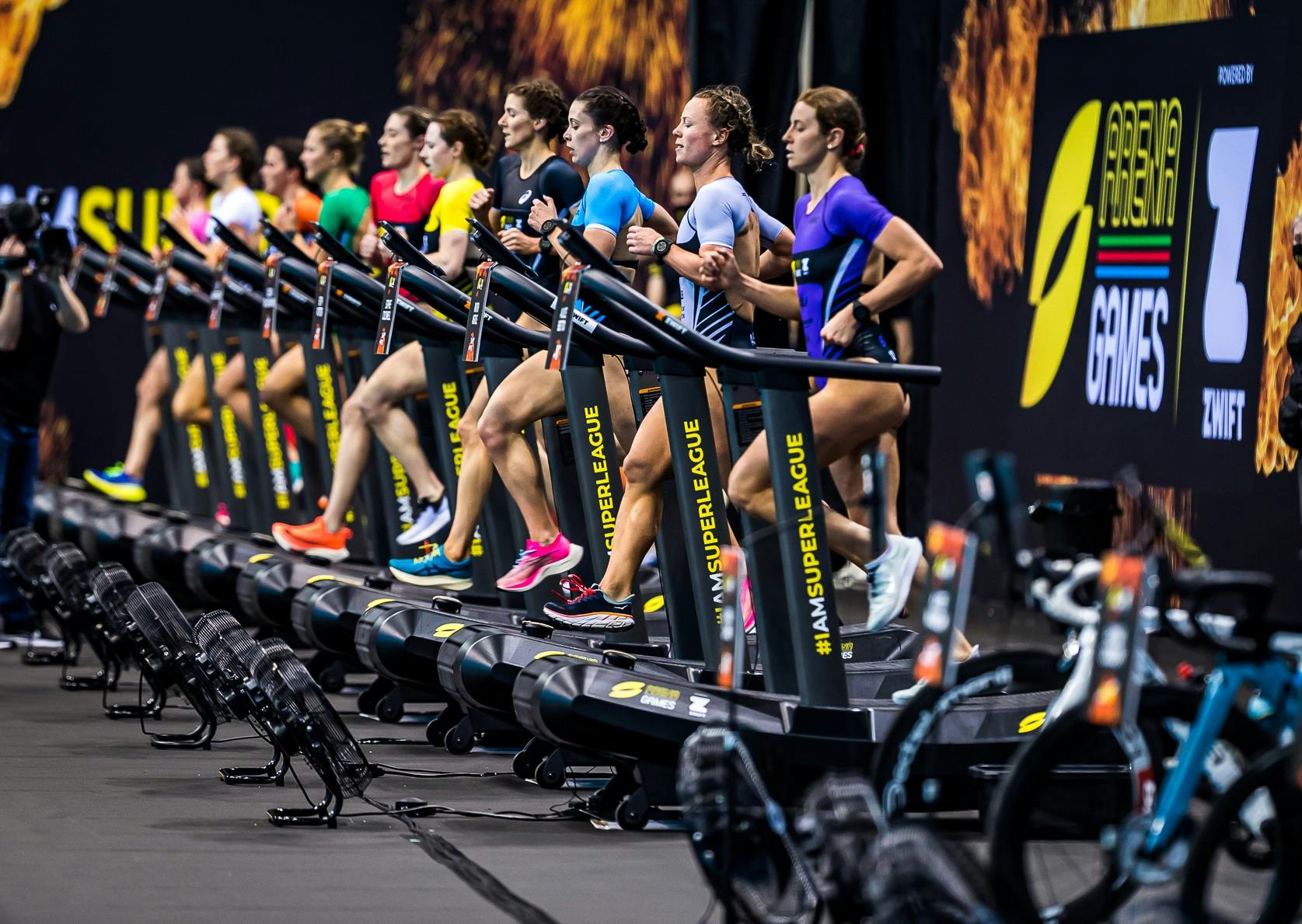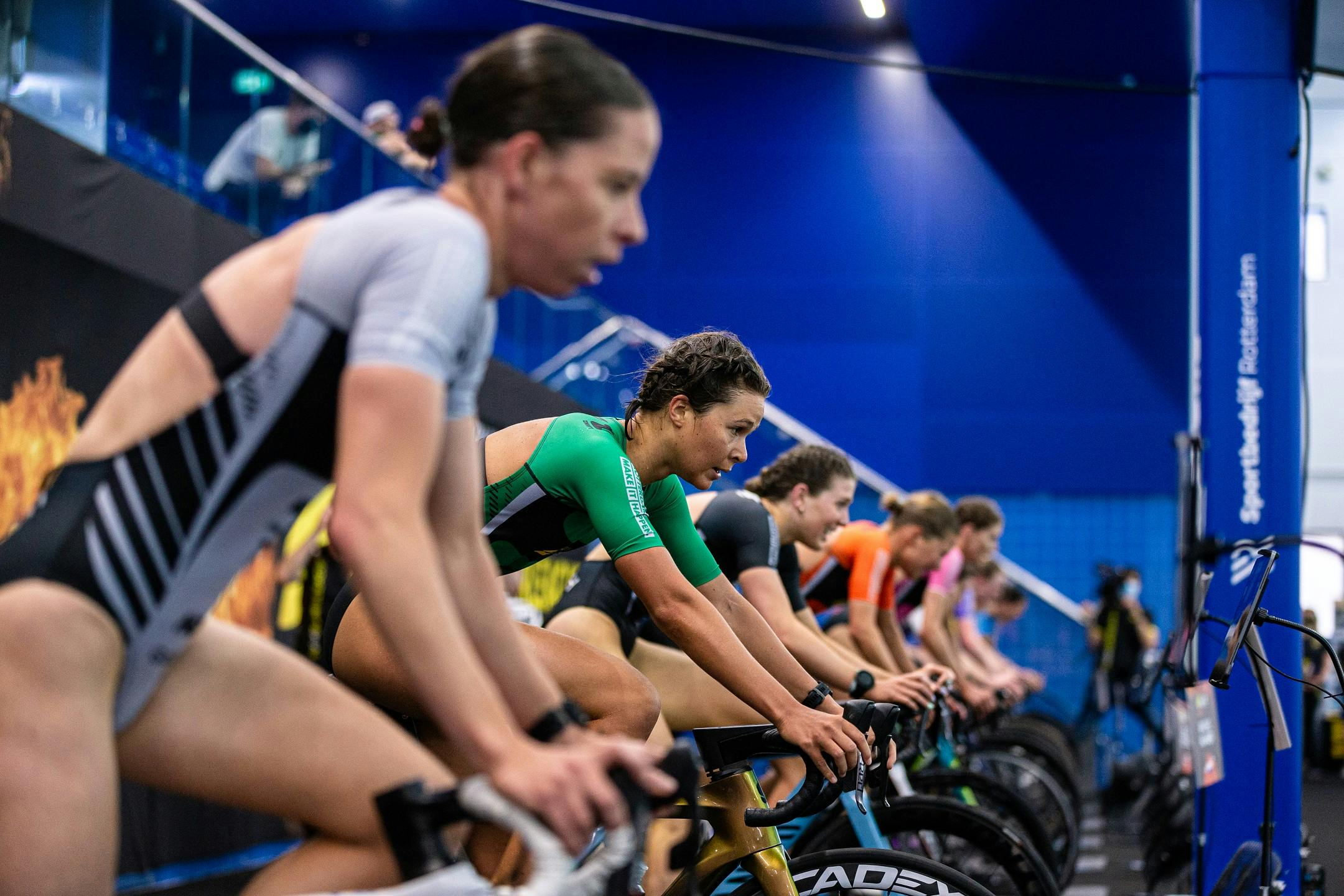After the Covid-19 pandemic stopped sport in its tracks in March last year, rights-holders and event organisers were forced to reimagine their output to keep fans engaged.
How, if at all, could events be staged during a pandemic? How could events keep followers engaged with no spectators in attendance?
For Super League Triathlon, the solution was the Arena Games – an amalgamation of real-life and virtual racing. Details of the launch were first announced in July last year ahead of the inaugural race in the Dutch city of Rotterdam the following month.
Zwift progress
With the backing of online cycling platform Zwift, Super League Triathlon was able to create a fresh event concept that combined traditional competition with an innovative digital element.
The Arena Games includes the three triathlon disciplines, with the ‘swim’ segment taking place in an Olympic-sized pool. The ‘bike’ and ‘run’ legs use poolside Tacx smart trainers and self-powered treadmills, with athletes competing in front of a screen that shows the entire field in virtual form.
Although the pandemic accelerated the adoption of a virtual race format, it is a concept that has been under consideration for some time.
“I first had the idea after attending the Host City conference in Glasgow in 2018,” says Super League Triathlon chief executive Michael D’hulst. “Zwift were talking about the work they had been doing around virtual races in cycling and it seemed to me there was an opportunity in triathlon as well.
“I spoke to Zwift about the concept and they were keen, so we began to discuss top-line ideas and then the conversations accelerated when Covid struck and indoor racing became so much more important.”

Covid-secure
The events are held in Covid-secure bubbles, with social distancing rules having been in place for last year’s meet in Rotterdam. Each event features 10 males and 10 females, tallying with Super League Triathlon’s commitment to delivering a gender-equal product.
The first event was held at Rotterdam’s Zwemcentrum and formed part of the city’s Summer of Esports festival. The event received broadcast coverage in 162 territories across 42 channels, and the success of the inaugural Arena Games led to further events in London and Rotterdam earlier this year.
“The feedback has been incredible,” says D’hulst. “This format has been refined as we have gone along, which when you are innovating with so much tech is an incredible feat from all involved. The athletes weren’t sure what to expect, but have loved it, as have the stakeholders who have got incredible exposure.
“Our event in London produced great viewership numbers with the BBC and also internationally with 5.9 million viewers over 277 hours of global broadcast and another 8.5 million on digital with impressive engagement, which supports the commercial viability of the concept. For Zwift also this is a great opportunity to integrate their virtual world into a real-life event and build towards a new format of triathlon raced by the best athletes in the world.”

Digital impact
Total digital impressions for the Arena Games currently stand at nearly 15 million, with about 8.5 million video views. The events are having an impact on fans, too, with 87 per cent of viewers surveyed after the London event stating that they were more inspired to participate in physical activity.
Thirty-two per cent of viewers said they were more likely to visit London after watching, while 68 per cent of people who had not visited Rotterdam before said they were more likely to do so.
The athletes themselves have also been impressed, with four-time world champion and Ironman world record-holder Tim Don having praised the “exciting, entertaining, quick, sharp and aggressive” format of the Games. “This could be part of the Olympic Games,” he said.
The consensus, then, is that the Arena Games have a long-term future, beyond the pandemic.
“I am very confident that the SLT Arena Games are here to stay,” says D’hulst. “It reaches and engages a new audience, the athletes like it, and it adds a completely new and innovative dimension to our sport. It fits so well with the trend we see with sport in general to introduce and support esports variations.
“Triathlon, as an Olympic sport, has that same drive to align with the International Olympic Committee. Any event that in its inception phase can reach 15 million people digitally, have more than 300 broadcasts and be so heavily talked about in the media shows great potential. They say Covid-19 has expedited certain trends in different aspects of life. This is one for triathlon events.”
The Arena Games also introduced its first para races this year, supporting para-athletes whose race opportunities have been limited in the lead-up to the Paralympic Games in Tokyo. Youth and junior races are also being explored.

Hosting opportunities
D’hulst envisages the Arena Games expanding from a one-off event format to a race series in 2022. With this in mind, Super League Triathlon is actively looking for new hosts who want to leverage and embrace the concept, with D’hulst planning for the series to take place in the first quarter of next year.
“Our top priority is always finding hosts whose values align with ours,” he adds. “Our modern selection process is based on shared goals and talking to hosts who are looking to showcase themselves as innovators, promote equality in sport and an active lifestyle.
“We are taking expressions of interest now for 2022 and plan to announce our SLT Arena Games calendar after our Championship Series in September. We want to partner with hosts who not only have the core technical requirements but are willing to invest in inspiring audiences.
“The most basic requirement is a venue with a swimming pool and the space and technical aspects we need for the sporting spectacle and production. As we come out of Covid-19, we also want the opportunity to host spectators.
“We want hosts who are committed to running a safe event and want to work creatively with us to maximise exposure. Obviously, there is a sharing of costs financially to be considered, but Super League Triathlon always remains responsible for delivering the event so there are no additional risks for host cities.”
With Covid-19 restrictions beginning to ease, there is every hope that when the series takes place next year, audiences will be engaged in-person, as well as from afar.
